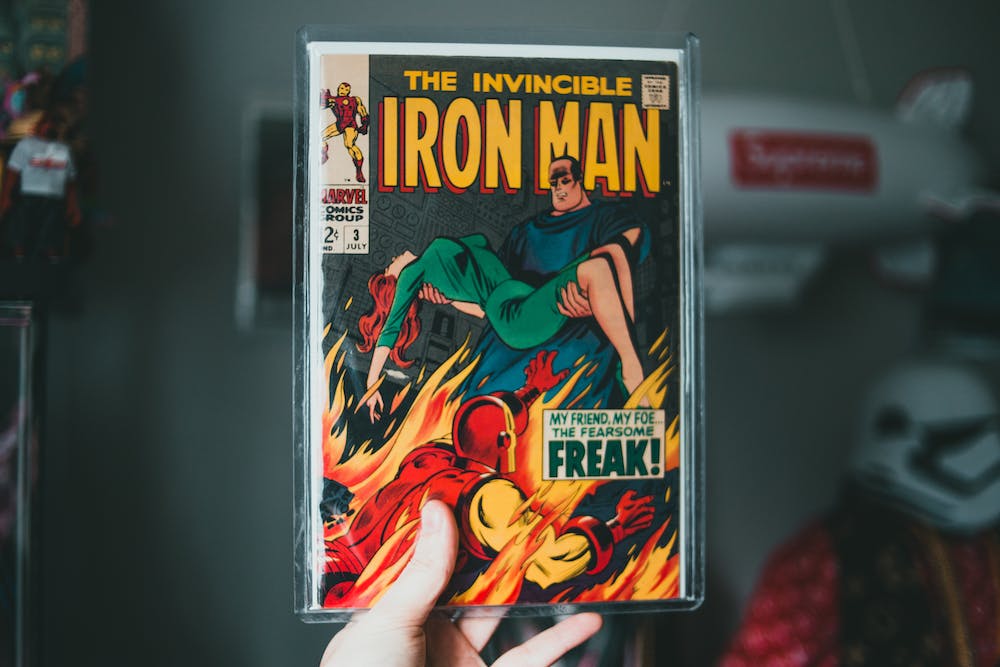In an era where visual storytelling transcends mere entertainment, iconic comics from Marvel and DC have carved indelible marks on the hearts of millions, influencing pop culture and inspiring generations. This article delves into the fascinating world of these graphic narratives, exploring their evolution, impact, and the elements that cement their status as cult classics. From the inception of superhero lore to the modern-day sagas that captivate audiences worldwide, we embark on a journey to uncover the essence of Marvel and DC’s legendary comics.
The Rise of Iconic Comics: Tracing the Origins of Marvel and DC Legends
The genesis of iconic comics can be traced back to a time when the world was ripe for heroes. In the early 20th century, amidst the backdrop of global conflicts and societal shifts, Marvel and DC emerged as pioneers, crafting universes filled with extraordinary characters that resonated with readers. Marvel’s initial forays into the comic book industry introduced characters who were not only superhuman but also deeply human, grappling with personal and societal issues. Similarly, DC Comics set the stage for mythic storytelling, creating archetypal heroes who embodied ideals of truth, justice, and the American way.
As these publishers evolved, so did their narratives, expanding into intricate universes with rich backstories and complex character arcs. Marvel and DC comics became mirrors reflecting societal changes, addressing themes of diversity, morality, and identity. The allure of these comics transcended age and culture, establishing a global fanbase and transforming the medium into a significant cultural phenomenon.
Decoding the Allure: What Makes Marvel and DC Comics Cult Classics?
The enduring appeal of Marvel and DC comics as cult classics lies in their unique blend of artistry, storytelling, and character development. These comics offer more than escapism; they provide a canvas where themes of power, responsibility, and transformation are explored in depth. The artistic innovation seen in the panels of Marvel and DC comics has continually pushed the boundaries of the medium, integrating sophisticated visuals with dynamic narrative pacing.
Moreover, the characters of Marvel and DC have become iconic figures, embodying traits that resonate with readers. Heroes like Spider-Man, Batman, Wonder Woman, and the X-Men have become cultural touchstones, representing various facets of the human experience. The relatability of these characters, combined with their extraordinary adventures, creates a compelling narrative that fans eagerly follow.
The narrative complexity of these comics also plays a crucial role in their cult status. Story arcs like Marvel’s “Civil War” and DC’s “Watchmen” have explored nuanced ethical dilemmas, reflecting real-world issues within fantastical contexts. Such depth of storytelling not only entertains but also provokes thought and discussion among readers, cementing the legacy of these comics as not just entertainment but as art that resonates with and reflects society.
Influential Marvel Comics That Shaped the Genre
Marvel Comics has consistently pushed the boundaries of what is possible within the realms of graphic storytelling, producing works that have not only defined the genre but also influenced broader popular culture. Titles such as “The Amazing Spider-Man,” “X-Men,” and “The Avengers” have become more than just comic books; they are seminal pieces that have shaped fans’ perceptions of heroism, justice, and community.
The Amazing Spider-Man is a quintessential example, offering readers a hero who is as susceptible to personal loss and daily struggles as they are. Peter Parker’s journey from a shy, awkward teenager to a superhero bearing the weight of responsibility resonates with readers, providing a deeply human perspective to the superhero archetype. The series’ exploration of themes such as the struggle for identity, the burden of guilt, and the quest for redemption have set a new standard for character development in comics.
Similarly, the X-Men series has been pivotal in addressing issues of prejudice, discrimination, and acceptance through the lens of mutant superheroes. These narratives have mirrored societal challenges, promoting a message of tolerance and understanding that transcends the pages of the comics. The diverse cast of characters, each with their unique abilities and backgrounds, reflects the richness of human diversity, advocating for a world where differences are not just accepted but celebrated.
The Avengers, on the other hand, showcases the power of collaboration and unity in the face of overwhelming odds. The dynamic interactions among characters with distinct personalities and ideologies highlight the importance of teamwork and sacrifice. The series has become emblematic of the idea that individuals, no matter how powerful, can achieve greater heights when they come together for a common cause.
DC’s Legendary Contributions to the Comic Book World
DC Comics has also been instrumental in defining the superhero genre, creating an illustrious pantheon of characters that have become cultural icons. From the stoic Batman to the inspiring Superman, DC’s heroes embody various facets of heroism and morality, offering readers a range of archetypes with which to identify.
Batman stands out as a symbol of human resilience and determination. Without any superhuman powers, Bruce Wayne’s alter ego battles against the darkness within and around him, using his intellect, physical prowess, and vast resources. The Dark Knight’s stories delve into themes of justice, vengeance, and the psychological toll of a life dedicated to fighting crime, offering a more nuanced and gritty perspective on heroism.
Superman, in contrast, represents the pinnacle of idealism and hope. His unwavering commitment to doing the right thing, regardless of the personal cost, provides a model of integrity and virtue. Superman’s stories explore the challenges of balancing immense power with responsibility, and his alien origin serves as a metaphor for the immigrant experience, highlighting themes of identity and belonging.
Moreover, DC’s Wonder Woman has become an icon of feminism and empowerment, challenging traditional gender roles and advocating for equality and peace. Her stories blend mythology, history, and adventure, offering a rich narrative that celebrates strength, wisdom, and compassion.









